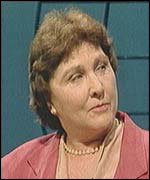|
Moral Panic - Child
Sexual Abuse |
|
|
The families who had children
removed from them after what they maintained were false allegations of child
abuse had to wait ten years before their complaint against Dr Moira Woods,
former head of the paediatric sexual assault unit at the Rotunda Hospital,
was brought to a conclusion. The allegation about the
activities of Dr Michael Neary, the disgraced
obstetrician at Our Lady of Lourdes Hospital in Drogheda, first emerged in
1998 and it was only last week that the formal disciplinary proceedings
ended. Now, in the wake of the Neary scandal, the government, after procrastinating for
more than a decade, is to introduce new legislation that will water down
self-regulation of the medical profession for the sake of greater openness
and to increase the speed of the procedures. As The Sunday Tribune can reveal
this weekend, under the planned new legislation doctors will no longer totally
dominate the governing body of their profession. The chairmanship of the
powerful committee that investigates allegations against medics may be given
to a lawyer and the public will be given greater access to information on
complaints. The new amended medical practitioners legislation has not yet been signed off by
the cabinet but it is understood that, under the heads of the bill, doctors
will have to prove their competence on an ongoing basis. The government is also set to link
these demands eventually with the planned reforms of the state's contract
with GPs and hospital consultants. Under the proposals, consultants
and family doctors would lose the right to treat public patients unless they
were maintaining their skills under continuing medical education programmes. The reforms would reverse the
current situation whereby the medical council, the profession's governing
body, largely responds to complaints. In future, it would be more proactive,
demanding and ensuring that doctors were able to do the job. Senior Department of Health
figures have recognised that the reforms will not come without cost.
Mandatory continuing medical education for the 7,500 or so doctors on its
payroll will involve paying for expensive conferences, journals etc, as well
as footing the bill for the provision of locums for those on study leave. The new government legislation
will also see a major shakeup of the medical
council with a major shift towards "laicisation". Up to one-third
of the council will be non-medics under the government's proposals. Sources say the new legislation
may also allow for a nondoctor to be appointed to
chair the Fitness to Practise Committee, the body that investigates
complaints. One of the main concerns among
people who have made complaints against doctors has been the frequently
inordinate amount of time it has taken for the medical council to conduct its
investigations and the high level of secrecy which surrounded the
proceedings. Both of these issues will be addressed in the government
reforms. For the first time, the new
legislation will allow the Fitness to Practise Committee access to outside
expert advisers who will be able to assist it in its work. Up to now, all
hearings and investigations had to be carried out by members of the committee
who, in the main, were working doctors with busy practices. At most, they
could afford to devote a few days a month to the work of the committee and
this delayed the process. The government hopes that allowing
outside experts (drawn from outside the ranks of the medical council) to
share some of the workload of the inquiry will speed up proceedings so that
investigations running into years will be a thing of the past. The new legislation will also seek
to remove what some complainants have maintained was an obsessive level of
secrecy attached to the work of the Fitness to Practise Committee. The medical council has claimed,
with perhaps some justification, that under current legislation it was
precluded from making any comment once it had decided to establish an inquiry
into a particular case. There have been occasions, the Neary case being one, when the minister's office in the
Department of Health was more or less told to "get lost" when it
sought information on how much longer an inquiry would take. Sources said
that, in future, more information must be made available to the public
regarding doctors who are under investigation. Sources close to the Department of
Health pointed to the British example, where the website of the medical profession's
governing body sets out details of those doctors facing disciplinary
inquiries. In the |

